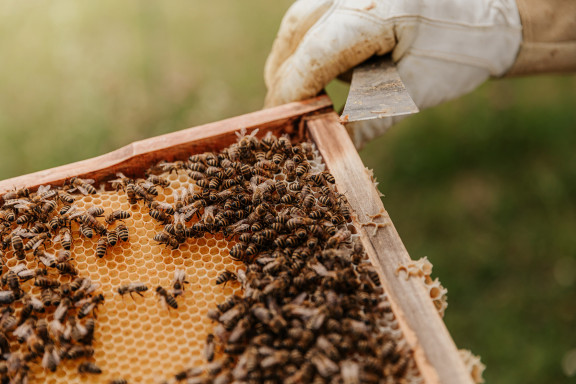Biodiversity conservation measures
SQLI took two initiatives in 2021 to assist preserve biodiversity, knowing how important it is. The first was to support reforestation efforts in Morocco, while the second was to safeguard bees and their hives in France.
Two beehives in France are being sponsored
The population of bees is under jeopardy. Their rapidly dwindling populations pose a risk to biodiversity. More than 80% of plant species rely on bees for pollination and reproduction, according to estimates.
In 2021, SQLI chose to team up with Un Toit pour les Abeilles ("a rooftop for bees") to support two beehives in France: one near its headquarters in Paris and the other near one of the Group's agencies in Toulouse. This initiative is part of the Group's commitment to corporate social responsibility.
SQLI is helping to safeguard bees and the growth of their colonies, both of which are in risk, by sponsoring 80,000 bees.
Morocco's reforestation is being aided
In order to encourage initiatives to reforest land in Morocco, SQLI, which has numerous agencies in the country, agreed to fund Reforest'Action. In addition to assisting in CO2 storage, SQLI's initiative is part of a larger agroforestry project with a social component.
Support for local inhabitants through agroforestry
The 300 trees planted by SQLI are part of a larger agroforestry project (which now includes over 30,000 trees) that benefits a significant number of rural Moroccan villages by promoting self-sufficiency, economic growth, and food security.
Reforest'Action carries out its agroforestry activities with the help of SQLI in collaboration with the local organisation Ibn Al Baytar.
Fruit trees that thrive in the Moroccan environment
The trees planted were chosen for their climate compatibility (lemon trees, olive trees, date palm trees, and carob trees), as well as the protective cover they give for the food crops planted around them. Food is collected and stored for consumption in rural villages, as well as being sold on local markets.
These plantations make it possible to:
- CO2 storage;
- Oxygen production;
- Biodiversity enhancement;
- Animal species protection through natural habitats;
- Creation of local jobs through the agroforestry project.
